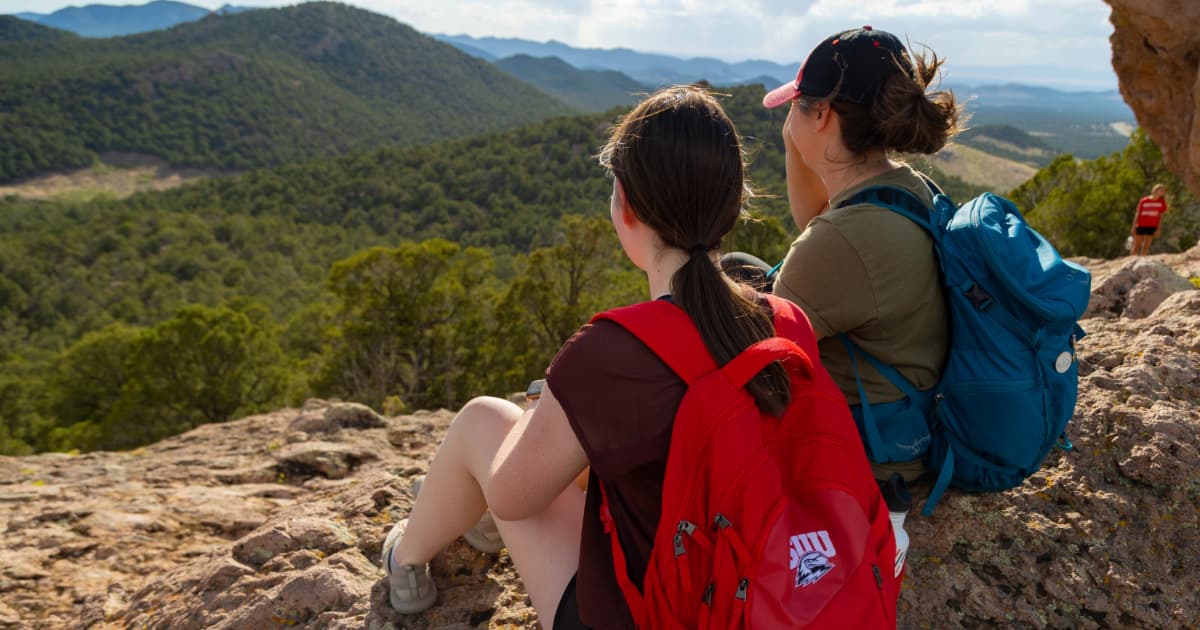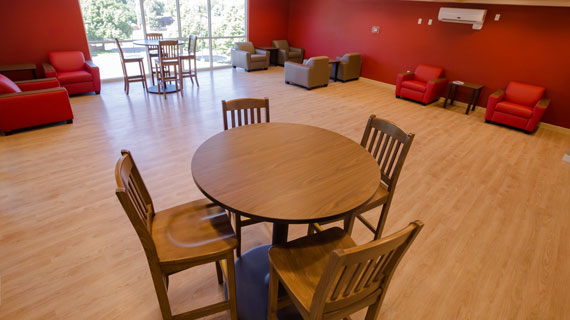How to Plan a Weekend Trip on a College Budget
Posted: February 09, 2024 | Author: Lindsey Wessling | Read Time: 5 minutes

Travel doesn’t always have to break the bank. With over 20 national parks and monuments within a five-hour drive from campus, Cedar City is the perfect launchpad for amazing weekend trips! The good news is that with a little creativity and planning, weekend trips are possible on a college budget.
Decide where you want to go.
The first step in planning a budget-friendly weekend trip is to decide where you want to go. Make a bucket list of places that interest you. Are you looking to explore a new city or venture into the great outdoors? Either way, Southern Utah’s prime location makes traveling to these Instagram-worthy destinations easy.
Here are some great ideas within driving distance of SUU:
National Parks:
- Zion National Park (1 hour)
- Bryce Canyon National Park (1 hour 30 min)
- Arches National Park (4 hours)
- Capitol Reef National Park (3 hours)
- Canyonlands National Park (4 hours 15 min)
- Great Basin National Park (2 hours 30 min)
State Parks:
- Sand Hollow State Park (50 min)
- Snow Canyon State Park (1 hour)
- Kodachrome Basin State Park (2 hours)
- Coral Pink Sand Dunes State Park (1 hour 30 min)
Cities:
- Salt Lake City, UT (3 hours 30 min)
- Las Vegas, NV (2 hours 30 min)
- Los Angeles, CA (6 hours 30 min)
- Moab, UT (4 hours)
Other:
- Lake Powell (2 hours 45 min)
- Red Cliffs National Conservation Area (45 min drive)
TikTok and Instagram Reels are also great resources for finding unique destinations in Utah and the Southwest!
Establish your budget.
Once you have chosen your destination, it’s time to set a budget. Determine how much you can spend on accommodation, transportation, food, and activities. It is important to be realistic and think about all possible expenses. A clear budget is vital to making informed decisions while planning your trip.
Invite friends!
Traveling with friends can be much more fun and cost-effective than traveling alone! Inviting others to join your trip allows you to share memories and split the cost. If you wear SUU gear make sure to tag @suutbirds in your social media posts!
Plan transportation.
Car:
Carpooling is the most budget-friendly transportation option for most destinations. If someone else is driving make sure to offer to split the cost of gas. This helps everyone save money.
Flights:
For more adventurous travelers, the Harry Reid International Airport (Las Vegas) offers great deals on weekend flights if you know where to look. Google Flights is a good resource for finding cheap flights. Simply input your starting airport and the dates you want to travel, then click “explore destinations.” If you want to compare different prices for different days, utilize the date grid to find the best deal. Resourceful travelers can often find $40 round-trip flights from Las Vegas to awesome West Coast destinations such as Los Angeles, Portland, and Seattle. Typically the most budget-friendly airlines are Frontier and Spirit.
Public transportation:
Most major cities have affordable public transportation opportunities. Make sure to research Metro bus and train options before using a ride-share app like Uber. Most cities offer day passes for under $10, and there are also discounts for students. The downside of public transportation is that it is typically not the fastest option, however, if you are willing to spend a little extra time it is the cheapest way to travel.
Find affordable accommodation.
Finding affordable accommodation is crucial for staying within your budget. Accommodation can often be the most expensive part of traveling, that said, there are ways to reduce the cost. Hotels are most likely going to be the most expensive places to stay for a weekend trip. Consider one of these options instead!
Camping:
Camping is the most affordable option for accommodation. Research camping spots before you arrive because some require advanced reservations/permits. Camping on BLM (Bureau of Land Management) land is free. Always follow Leave No Trace principles, especially when camping on public land. Additionally, always have a backup plan in case of inclement weather or a full campsite.
Hostels:
Hostels are famous in Europe for being budget-friendly places to stay. What most people don’t know is that the United States has affordable hostels also! Most major cities such as Salt Lake City, Los Angeles, and Seattle have hostels where you can stay in a shared dorm room for under $30 per night. Hostelworld.com is an easy way to find hostels with good reviews. Make sure to bring earplugs if loud snoring keeps you awake at night. While staying in a shared dorm isn’t for everyone, it is a budget-friendly way to explore new cities.
Vacation Rentals:
Airbnb or other vacation rentals are often a cheaper alternative to staying in a hotel. Most Rentals are more expensive than camping and hostels but offer the privacy of a hotel for often a fraction of the price. Make sure to read the reviews to ensure a safe and comfortable stay.
Plan free or low-cost activities.
Research and make a list of free or low-cost activities at your chosen destination. It helps to make an itinerary before you go, so you don’t spend extra money. However, being spontaneous is sometimes part of traveling, so it might be helpful to add an extra category to your budget for unplanned activities.
Here are some typically free or low-cost activities:
- Hiking: research hiking trails or viewpoints at your destination
- Museums: some museums offer student discounts or free admission
- Beaches: most beaches are free to the public
- Local markets: it is free to explore local farmer’s/flea markets
- Free community events: research your destination before you go to see if there are any local events happening that weekend. You never know what you might find!
Planning a weekend trip on a college budget requires resourcefulness and careful planning. However, experiencing a new destination is worth the extra effort. By establishing a budget, inviting friends, planning ahead, and taking advantage of student discounts you can travel without breaking the bank. Happy travels!
Tags: Outdoors CurStu Utah College Tips Student Life



